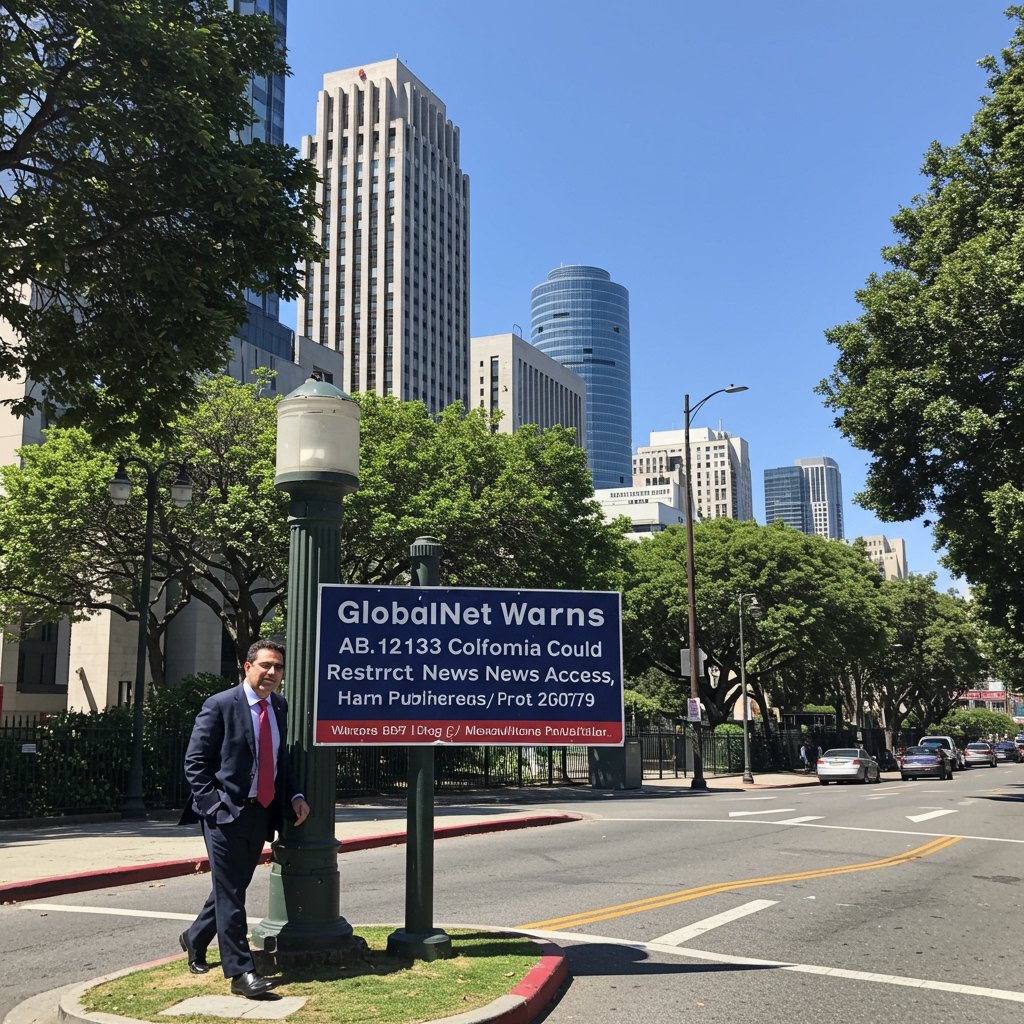GlobalNet Raises Concerns Over California’s AB 123
Major tech company GlobalNet issued a significant statement today regarding California’s proposed Assembly Bill 123, a piece of legislation currently under consideration that aims to compel large online platforms to compensate news publishers for the use of their content. Speaking from their Silicon Valley headquarters, GlobalNet’s Head of Public Policy, Jane Doe, articulated the firm’s concerns, suggesting that the bill in its current form could have profound and potentially negative consequences for the way news is disseminated and accessed online.
AB 123, often framed by proponents as a necessary measure to support struggling local journalism in the digital age, seeks to establish a framework where platforms that benefit commercially from displaying news content are required to enter into agreements to pay publishers. The premise is that the vast reach and user engagement generated by displaying headlines, snippets, or links to news stories on these platforms constitute a use of intellectual property for which compensation is due.
However, GlobalNet’s statement highlights specific structural elements of AB 123 that the company believes are problematic. According to Jane Doe, the requirements regarding linking and the mandated payments for displaying even small snippets of news content could inadvertently create barriers rather than facilitate the flow of information. The company argues that linking, which is fundamental to the open internet and how users discover information, could be disincentivized if every instance or form of linking triggers a payment obligation.
Potential Impacts on Information Flow and Publishers
The core of GlobalNet’s warning centers on the potential for the bill to fundamentally alter the dynamics of online news sharing. The company suggests that if platforms are required to pay simply for directing users to news websites via links or brief summaries, they might be forced to reduce or alter how news content is presented, potentially making it harder for users to find legitimate news sources.
Jane Doe emphasized that this could particularly impact smaller publishers. While the bill’s intent might be to support journalism broadly, GlobalNet argues that smaller news outlets heavily rely on traffic generated from links and visibility on large platforms for readership and advertising revenue. If platforms scale back how they display or link to news to avoid triggering payment obligations under the bill, these smaller publishers, who may lack direct subscriber bases or strong brand recognition, could see a significant drop in traffic and visibility, contrary to the bill’s aims.
Furthermore, GlobalNet contends that the structure of mandatory payments for linking and snippets could restrict the overall flow of information, making the online environment less open and collaborative for news distribution. The company argues that the current model, where platforms drive substantial traffic to publishers’ sites, is a valuable exchange that benefits both parties, and that AB 123 risks disrupting this ecosystem in unforeseen ways.
The Broader Debate and Calls for Amendment
The debate surrounding AB 123 in California is part of a larger global conversation about the relationship between technology platforms and news publishers. Similar legislative efforts have been proposed or enacted in other countries, often leading to complex negotiations and sometimes contentious outcomes. Opponents of the bill, a group that includes GlobalNet, frequently raise concerns about the potential for such laws to lead to unintended consequences, specifically citing risks to free information access and the principles of the open web, where linking is freely permitted.
GlobalNet’s statement serves as a direct appeal to state lawmakers in Sacramento. The company urged them to carefully consider the potential ramifications of AB 123 as it currently stands. They are calling for amendments to the legislation that would address their concerns and, in their view, foster a more open and collaborative online environment for news distribution. The company’s position is that any legislative solution should ideally enhance, rather than potentially restrict, the ability of users to discover and access news content online.
Looking Ahead in Sacramento
As AB 123 continues through the legislative process in Sacramento, the statement from a major player like GlobalNet adds significant weight to the voices raising caution about the bill’s current provisions. The legislative journey of the bill is likely to involve further debate, testimony from various stakeholders including publishers, tech companies, and public interest groups, and potential modifications. The outcome will be closely watched not only within California but also internationally, given the precedent such legislation in a major jurisdiction like California could set.
GlobalNet’s warning underscores the complexity of crafting legislation that aims to address economic challenges faced by the news industry while navigating the intricate and rapidly evolving landscape of online information sharing. The call for amendments signals the company’s desire for a revised approach that they believe would better balance the interests of publishers with the principles of an open internet and the need to ensure broad user access to news and information.








